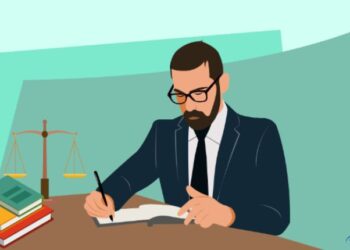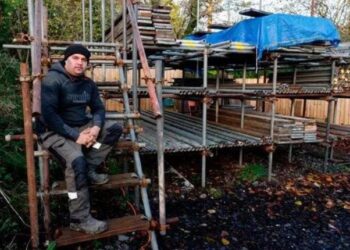Domestic violence is a serious issue in Australia. In 2018, the government introduced new legislation that increased the tenure of the domestic violence sentence in Australia. The changes included a maximum sentence of life imprisonment for the most serious offences, such as murder and aggravated sexual assault.
Survivors of domestic violence may need legal assistance to help them navigate the legal system and protect their rights. Finding the right legal support can be challenging, but there are resources available to help. So, the following points list some of the ways domestic violence survivors can find legal support in Australia.
Understanding Domestic Violence
Domestic violence can manifest in various forms, ranging from physical, sexual, and emotional to financial abuse, and it can happen among partners or within families. Its negative impact on the physical and mental health of the survivor can be long-lasting. So if you find yourself in a domestic violence situation, it’s crucial to recognise that you’re not to blame, and support is accessible. Additionally, it’s vital to be aware of your legal rights and alternatives.
Legal Aid
Legal Aid is a government-funded organisation that provides free legal services to people who cannot afford a lawyer. Domestic violence survivors can apply for Legal Aid, which can provide legal advice, representation, and support. Legal Aid also has a Domestic Violence Legal Service, which is specifically designed to help survivors of domestic violence. And to be eligible for Legal Aid, you must meet specific criteria, including income and asset tests.
Domestic Violence Organisations
Domestic violence organisations can also provide legal support and resources for survivors. These organisations may have lawyers on staff or may be able to refer survivors to lawyers who specialise in domestic violence cases. Domestic violence organisations can also provide emotional support, counselling, and advocacy. Some domestic violence organisations in Australia include 1800RESPECT, Women’s Legal Service, and Domestic Violence NSW.
Private Lawyers
Private lawyers can also provide legal support for survivors of domestic violence. Choosing a lawyer who specialises in domestic violence cases and has experience working with survivors is essential. You can search for a lawyer on different websites or through a referral service. Private lawyers may charge fees for their services, so discussing fees and payment options upfront is essential.
Family Law Courts
The Family Law Courts in Australia deal with family law matters, including domestic violence cases. And if you seek a protection order or want to take legal action against your abuser, you may need to go through the Family Law Courts. The Family Law Courts have a range of services available for domestic violence survivors, including support services, counselling, and legal advice. You can find more information on the Family Law Courts website.
Police
If you are experiencing domestic violence, it’s important to prioritise your safety. If you feel that you are in immediate danger, it’s important to call the police. The police can provide protection and support for domestic violence survivors and can also provide information on legal options. They can respond and help you get to a safe place. If you have experienced physical or sexual assault, the police can lay charges against your abuser and get them the right domestic violence sentence in Australia. They will investigate the situation and collect evidence to support your case. If the police believe that you are in danger, they can also issue a protection order.
Finding legal support for domestic violence survivors in Australia can be daunting, but resources are available to help. Legal Aid, domestic violence organisations, private lawyers, Family Law Courts, and the police can all provide legal support and resources for survivors. Understanding your legal rights and options is essential when choosing a lawyer or organisation specialising in domestic violence cases. Domestic violence is a serious issue, but with the right legal support and resources, survivors can protect their rights and take steps towards healing and recovery.












